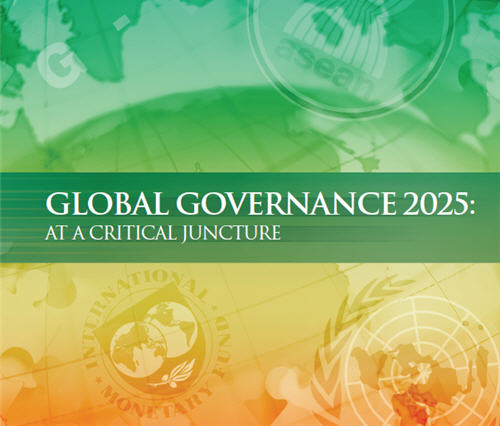
This morning, the Atlantic Council hosted the launch of Global Governance 2025, a report following a long collaboration with several partners. The fundamental takeaway is that, while cooperation between the United States and Europe is essential, it "is no longer enough to effectively manage global challenges." Instead, key players from around the globe will need to develop new institutions to deal with the world’s problems.
The report stresses that "formerly localized threats are no longer locally containable but are now potentially dangerous to global security and stability." The listed challenges range from migration problems to resource scarcity to climate change to state collapse. And the authors do a superb job of laying out the case that neither individual states nor existing global frameworks are adequate to the tasks.
And, yet, while the need for cooperation seems obvious, the prospects for achieving it seem bleak.
It’s true that the surging power of China, India, Brazil, and others means that they deserve a seat at the "big table." But it should be recognized that, while transatlantic consensus on dealing with the big issues is inadequate, it also hasn’t been achieved, despite the fact that we "share fundamental values and strategic interests to an extent not matched by any other partners in the world." Figuring out how to do that while also getting the cooperation of players with very different values and strategic interests is going to be a neat trick, indeed.
And that’s not to mention, as was noted many times by the report’s primary authors at the launch event, the lack of domestic consensus even within the West. We’re in the midst of a global recession (albeit, one that technically "ended" last summer in the United States) and face polities that are turning inward, demanding solutions to short term issues like jobs and out-of-control budgets. The mood for ambitious global projects is, to say the least, not apparent.
To take one obvious example, there is strong doubt in the United States as to whether global warming even exists, much less consensus that we need strong action to deal with it. It’s virtually inconceivable that a serious treaty regulating carbon emissions could make it through the Senate.
None of this is to say that we shouldn’t try to build new frameworks toward multi-lateral cooperation. We don’t have much choice. The United Nations and the other institutions devised in the aftermath of World War II simply aren’t up to today’s challenges. But "global governance" may be too ambitious a name for the likely end result. After all, we can barely govern ourselves.
James Joyner is managing editor of the Atlantic Council.
Image: global-governance-2025_0.jpg
